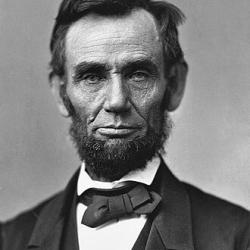At the same time, it is difficult to see how such a being could really be an individual. Individual traits are always one among other possibilities. Is so and so thoughtful or spontaneous, for example? I am not sure what a perfectly thoughtful and spontaneous being would be, perhaps because they take their meaning from contexts in which we act. The context tells us what is wiser. Other pairs are even less obviously fitted to a image of monotheistic perfection. Consider male and female for example. Individuality always emerges from being immersed in relationship, and would do so in deities as well as with people.
Any time we begin to think in terms of individuality and personality we end up in plurality, as I tried to show in my essay "The Myth of Monotheism." And so I want to suggest that the popular monotheistic image of God as a omnipotent and omniscient personality is a tissue of confusion.
Perhaps that is why while there is a long history of people trying to "prove" the existence of a monotheistic God by pointing to things outside God, and failing. There is no widespread tradition of agreement to my knowledge about monotheists agreeing about the qualities of their God as they encounter Him-perhaps because so few, if any, have encountered Him. When they try they splinter into what I consider a kind of polytheism where each claims to worship the One True God, but always with dramatically different traits.
On the other hand, there is a long Christian contemplative tradition that agrees on the nature of God described as a monistic Godhead, and often acknowledges the similarities of their experiences with those of Eastern and other contemplative traditions. As I was returning from Berkeley a few days ago I heard an NPR interview with father Thomas Keating, a Christian contemplative, who said that there were a multiplicity of spiritual traditions which seemed to lead practitioners to a common or complimentary encounter with the Ultimate which was greater than any single tradition could encompass. This Ultimate was not a personality, not an individual.
Monism
While the traditional God-as-omniscient-omnipotent-individual does not fit being able to love, the far older idea of monism, that there is an ultimate source out of which everything emanates, does. Even monotheistic contemplative traditions support the reality of a Source from within which everything comes and to which everything is connected. But this Source is not an individual; it is not a personality because it encompasses all personalities and all contexts that create individuals. By encompassing all personalities and contexts it experiences what all personalities experience, and so can care and can love, and do so perfectly. (There are answers to the problem of how bad things can happen in such a reality, but this is a column, not a book. A good start on that question is my discussion of evil in "Pagans and Christians." )
Monism is far more adequate than monotheism as a means for understanding the Ultimate and a better understanding of what an individual really is helps us appreciate this fact in greater depth. Monism was the basic outlook of many in the Pagan world before it was overturned by political violence in service to the church, and continues to be a common heritage of those within meditative and contemplative traditions worldwide.





